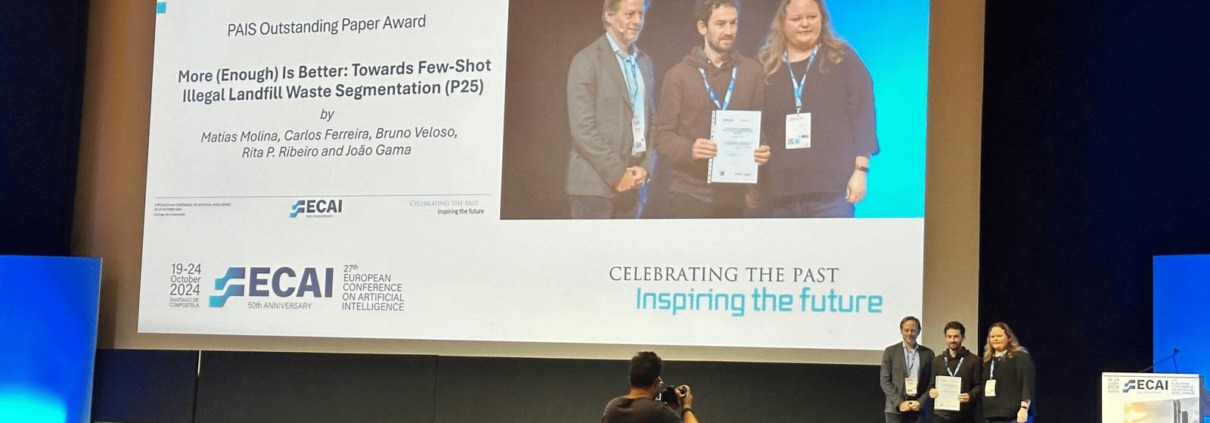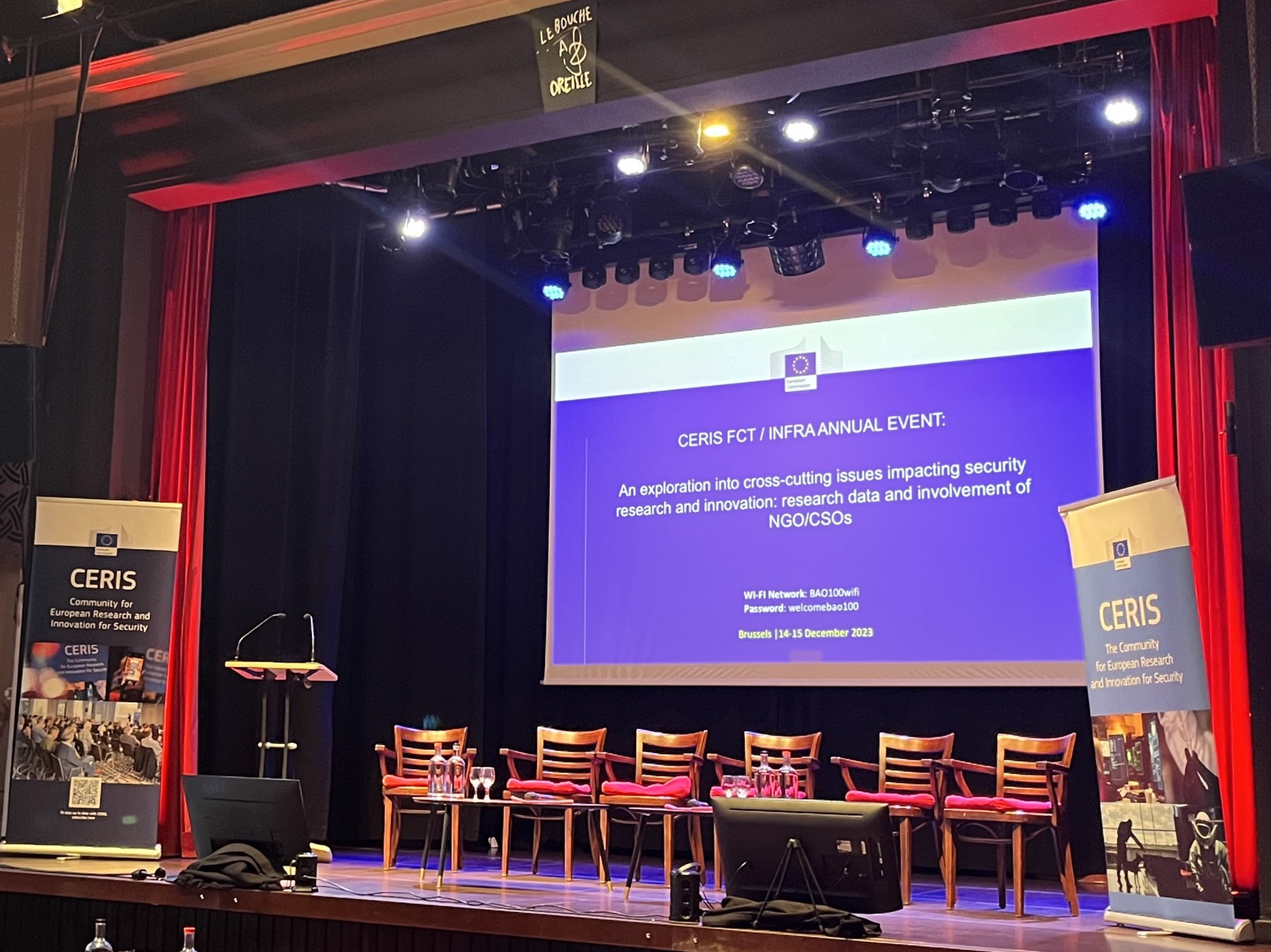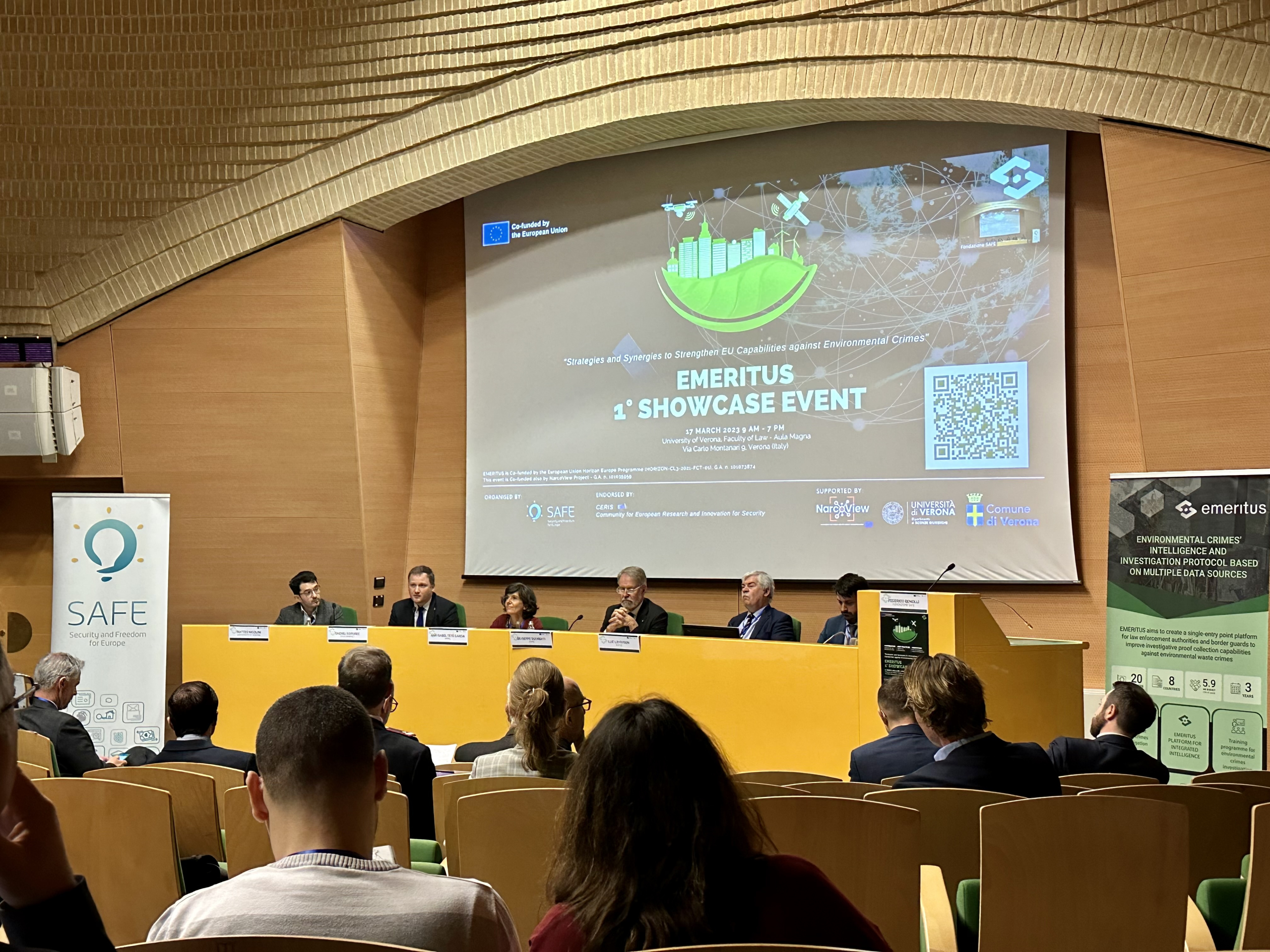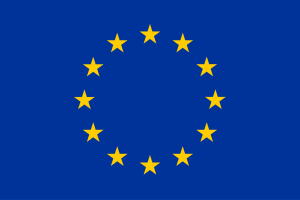Celebrating achievements in AI research: INESC TEC wins the “Outstanding Paper Award” at ECAI 2024
The European project EMERITUS is proud to announce a significant achievement by our scientific partners from INESC TEC, who recently received the Outstanding Paper Award at the 13th Conference on Prestigious Applications of Intelligent Systems (PAIS 2024) in the 27th European Conference on Artificial Intelligence (ECAI). Their paper, titled “More (Enough) Is Better: Towards Few-Shot Illegal Landfill Waste Segmentation”, addresses a critical issue in environmental crime monitoring through innovative AI techniques.
ECAI 2024
ECAI 2024 took place from October 19 to 24 in the historic city of Santiago de Compostela in Spain. This premier event is a cornerstone of the AI research community in Europe, featuring a rich program that includes technical papers, workshops, tutorials, and invited talks. This year, the conference celebrated 50 years of European AI conference under the motto: “Celebrating the past. Inspiring the future.” The event was organised by the European Association for Artificial Intelligence (EurAI) and the Spanish Artificial Intelligence Society (AEPIA), with support from the Intelligent Systems Group at the University of Santiago de Compostela’s CiTIUS Research Centre.
INESC TEC paper on few-shot illegal landfill waste segmentation
The paper authored by Matías Molina, Bruno Veloso, Carlos Abreu Ferreira, Rita P. Ribeiro, and João Gama delves into the challenges of detecting illegal landfill waste from aerial images – an essential task for effective environmental crime monitoring. Despite the advancements in segmentation models, the primary obstacle remains the scarcity of annotated data due to the often-hidden locations of illegal dumpsites.
Key contributions
- Innovative methodology. The research introduces a novel approach combining supervised binary classification with agnostic segmentation to improve the detection of illegal waste segments using limited annotations.
- Dual approach. Two methodologies were explored: one purely agnostic, relying on a binary classifier for the presence or absence of waste, and another that incorporates predictive elements to enhance segmentation accuracy.
- Evaluation metrics. The study expands traditional evaluation metrics, integrating various measures to assess the quality of segmentation specifically for environmental monitoring, which is crucial given the unique challenges of this domain.
The findings of this research not only advance the field of AI and image segmentation but also have profound implications for environmental sustainability efforts. By effectively identifying illegal waste through limited data, this work contributes to broader initiatives aimed at protecting ecosystems and public health.
For more details about the paper and its findings, read the full article at the conference book, or visit the ECAI 2024 website.





